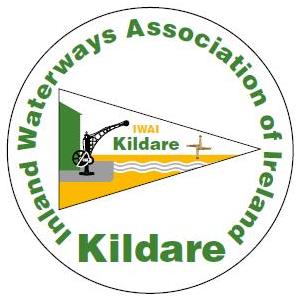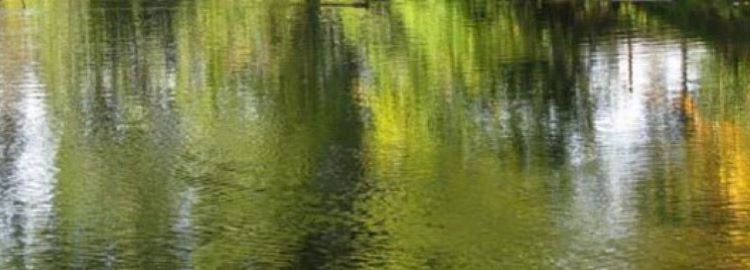Working towards fair Canal Bye Laws – a summary of the last thirteen years
In July 2010, Paul Garland, President responded to a Waterways Ireland (WI) public consultation questionnaire on the 2010 draft Bye Laws on behalf of the Inland Waterways Association of Ireland (IWAI). It is worth noting that the closing date for this public consultation was October, giving respondents a full three months to make their views known. WI’s CEO at the time was John Martin.
In 2012, the first reference to Extended Mooring Permits (EMPs) appeared. These ‘permits’ were accompanied by a complex licence agreement. IWAI under President Greg Whelan mounted a challenge to the wording of the insurance indemnity clause. Some revisions were secured but the issue was never fully resolved.
In January 2014, WI under CEO Dawn Livingstone, launched a Canal Bye Law public consultation on January 6th closing 21 days later. WI’s Corporate Plan for the same period had a three months consultation period. IWAI President Carmel Meegan established a Canals Action Group (CAG) to raise awareness and force meaningful engagement with WI over concerns with some of the proposed changes. The key issues identified were as follows.
- The legal basis for the EMP
- The locations of EMP places
- The 5-day rule
- The introduction of new tolls and charges
- The introduction of Fixed Penalty notices with appeal through the courts
- The lack of a meaningful consultation mechanism with WI
- Concerns over governance structures within Waterways Ireland
The CAG very quickly mobilised the IWAI membership through meetings and presentations. In addition, the CAG lobbied local authorities highlighting the potential negative implications for tourism and local communities along the canal corridors. It must be stressed that the reason this campaign was so aggressive on the political front is that WI refused to engage meaningfully. Meetings took place but the outcomes did not address the issues.
In February 2014 IWAI made its submission to WI on the Bye Laws. In total more than 2000 submissions were made by members of the public and waterways users. At the same time the CAG lobbied County Councils requesting that the Minister with responsibility for WI refuse to enact these new Bye Laws without addressing IWAI concerns first.
In March 2014 the IWAI received an invitation to attend an Oireachtas Environment, Culture & Gaeltacht Committee hearing. Carmel Meegan, Greg Whelan, John Dolan & Derry Smith attended for IWAI, Dawn Livingstone Nigel Russell, John McKeown & Charlie Lawn for WI, and Joe Treacy & Andy Roche for the Heritage Boat Association.
In 2015 WI pushed ahead with the introduction of licence agreements for EMPs without the legal basis for doing so. Campaigning continued several fronts to highlight CMP permit compliance in the absence of a legal basis for EMPs. The CAG sought a meeting with the Minister which proved unsuccessful. Bye Law revisions did not progress further, though WI indicated that there have been substantial revisions to the drafts. These revisions were not shared with IWAI. Also in 2015, a small number of amendments were proposed to the Lough Erne Bye Laws.
In January 2016 proposed amendments to the Canals Act were brought via The Heritage Bill just before the dissolution of the Dáil, without prior notice to IWAI and without any public consultation. The IWAI CAG mounted a national campaign to challenge multiple amendments that if accepted would allow WI substantial new powers. IWAI CAG wrote to Seanad Éireann highlighting the unconventional way the Bill was introduced.
From 2016 to 2018, IWAI under President John Dolan again lobbied politicians to pledge their support for a new dedicated Canals Act. The IWAI CAG engaged in a sustained campaign making presentations to the Seanad and the Dail and secured substantial amendments including 90 days for public consultation. The IWAI CAG also sought further legal advice and met with the Department and WI, which ultimately led to clarification that there was never a legal basis for EMP licences. Clauses relating to the Maritime Safety Act 2005 dealing with Fixed Penalty Notices, Fines, Appeals and Search Warrants were challenged unsuccessfully as these clauses are standard in primary legislation. The Heritage Act 2018 became law, giving WI extensive powers in relation to the management of the Canals, including the powers to introduce Bye Laws for that management and charges for the use of and mooring on the canals.
From 2018 to 2020, IWAI continued to engage with WI to agree the terms and conditions for revised permits. Several contentious issues including a deposit for extended mooring were challenged. Due to a change in management within WI there was no further progress on these discussions.
From 2020 to 2023 IWAI under Presidents Alan Kelly & Kay Baxter engaged in regular consultation with WI CEO John McDonagh and his senior managers on a variety of matters including Brand Identity, Long Term Strategic Plan, Bye Law revision for the Canals and Living Aboard in Ireland. Open discussion between IWAI and WI regularly took place at IWAI Executive and branch level.
In 2021, Executive established a sub-committee with a view to developing a Residential mooring policy that would be acceptable to our members. This sub-committee was chaired by John Fitzgerald and its members were representatives of the IWAI Canal Branches and the Residential Boating community. As part of their work, all members’ opinions were sought through an online survey. That policy, which made many recommendations including a charging structure, was shared with WI.
Many of the suggestions IWAI made through this policy and through our meetings with WI were taken onboard and found their way into draft documents including the current drafts for the Shannon and Canal Bye Laws. We do need to emphasise that the Draft Shannon Bye Laws out for consultation now (2023) are the first draft of revised Bye Laws for the Shannon Navigation. All previous interaction was in relation to Canal Bye Laws.
WI continue to engage and take onboard feedback from IWAI during this live public consultation period. We believe that IWAI is now in a position where its constructive suggestions and workable solutions are taken seriously by WI. Discussions are frank and transparent, the result of 13 years of hard work which has brought us to the point where we are being listened to.
Kay Baxter & Alan Kelly August 2023

